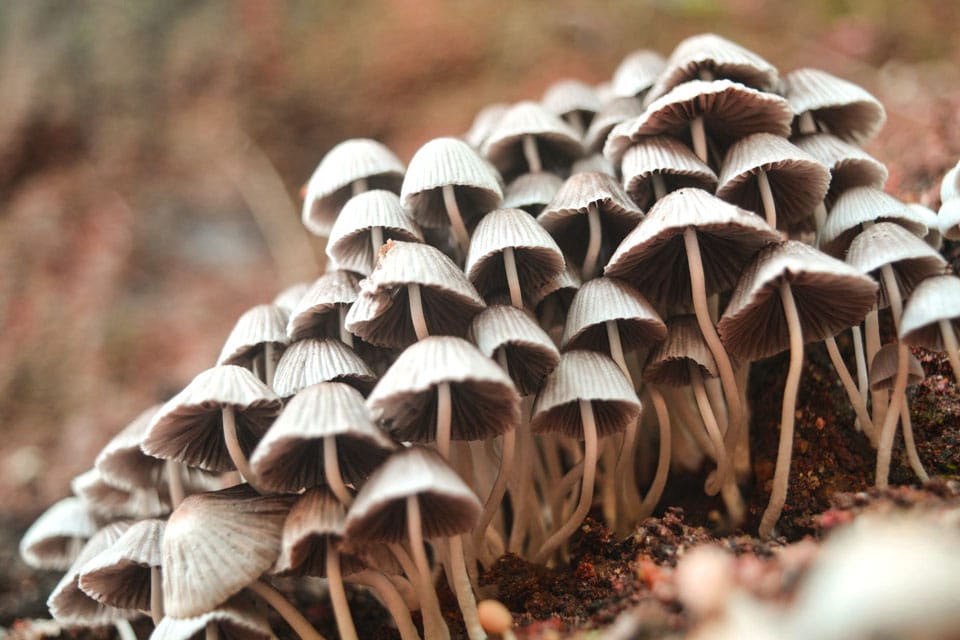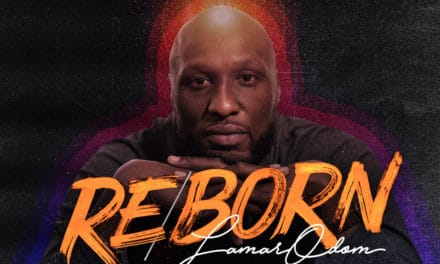This interview with Sean McAllister on Denver’s Psilocybin Policy Panel is a guest post by Sean Lawlor (@seanplawlor).
Denver’s making headlines again by forming the world’s first “Psilocybin Mushroom Policy Review Panel.” The 11-person panel is a direct follow-up to the city’s passing of Initiated Ordinance 301 (I-301) in May 2019, which effectively decriminalized psilocybin mushrooms in Denver. In the months that followed, I-301, which was created by Decriminalize Denver (since rebranded as “SPORE”), inspired similar campaigns in numerous states. At this point, nearly 100 cities have stated their intention to decriminalize not only psilocybin, but all “naturally-occurring” psychedelics.
The Denver panel, which held its first meeting in January of 2020, will work with the Denver Police Department, the Denver Sheriff Department, and the Denver City Attorney’s Office to collect data on decriminalized psilocybin’s effect on the community, while also establishing strategies to navigate the challenges decriminalization might open. The hope is to demonstrate how a group of individuals representing the will of the voters can work with local law enforcement to establish an effective model for legal changes and harm reduction.
To better understand where psilocybin stands at this moment of the panel’s forming, I spoke with panel member Sean McAllister, Esq., who served as legal counsel to Decriminalize Denver, to clarify confusions around the practical implications of I-301. Sean also serves as general counsel for Chacruna and is speaking at the upcoming Psychedelic Liberty Summit this April.
Decriminalization… Right?
In case you missed the memo, “decriminalization” is different than “legalization.” That means you can’t open a Denver office tomorrow and start selling shrooms — well, you could, but you’d get busted quickly, because it would be illegal. But that’s because you’d be distributing for profit, which is not decriminalized under I-301. In addition, sharing or transferring psilocybin is a grey area and not clearly legal. What’s decriminalized is personal possession, storage and cultivation of mushrooms, which McAllister stated are now “lower in enforcement priority than jaywalking.” So you can grow, possess, and store psilocybin mushrooms, but you can’t open a business selling them. And you have to be over the age of 21.
But McAllister notes that the ordinance decriminalizes only a “personal possession” amount, an intentionally ambiguous term. While that ambiguity could help your case, it ultimately leaves the decision in the hands of city and district attorneys and will be judged on a case-by-case basis.
“You could be prosecuted if you have what law enforcement views as greater than a personal possession amount,” McAllister said. “You could be prosecuted if they think you’re distributing it.”
Such appeared to be the fate of Kole Milner, a Denver resident who made headlines for being the first person post-decriminalization to be raided by the police. Milner had been an “anonymous” source for multiple media outlets, boasting about his booming mushroom business and citing about $2,000 a month in sales. Unfortunately for Milner, he left some pretty obvious clues about his identity, and the DEA busted into his home and seized 20 ounces of dried mushrooms alongside 906 live ones. For those unfamiliar, that’s a lot of shrooms.
Milner’s story dropped in October 2019, five months after the ordinance passed, shaking many a psychonaut’s sense of security with I-301’s pro-mushroom momentum. Milner’s future, alongside the future of I-301, hung in uncertainty.
Nevertheless, McAllister informed me that Milner wasn’t prosecuted—though we can hope he’ll change his hubris-informed ways. In a pre-raid statement to the Denver Post that helped law enforcement identify him, then-anonymous Milner stated: “If I can position myself to be a propagator, to be a cultivator who helps serve people with the mushroom, then I’m sure I’ll be financially rewarded and taken care of. It’s like I’m getting green lights all over the place.”
Let this harsh red light serve as an example for how not to proceed. You’re safe possessing an eighth in your sock drawer; you’re far less safe arguing the ten pounds in your closet are acorns for your impending hibernation. The lesson from Milner’s story: let mindfulness and gratitude outweigh selfish intent to profit.
McAllister summed it all up for us: “Decriminalization in Denver means you and your friends over the age of twenty-one can grow a personal possession amount of psilocybin in your home. And the initiative in Denver says the city cannot spend any money enforcing criminal law against you.”
Of course, nothing these days is free of controversy. Since I-301’s passing, plenty of folks have hotly debated how to proceed, and whether it’s a good thing at all.

Michael Pollan at Chez Panisse in 2020, photo by Christopher Michel
Medicalization! Legalization! Decriminalization! Oh My!
A few days after the ordinance passed, Michael Pollan, a food journalist who’d recently written a book about psychedelics, angered a lot of people by writing an op-ed for The New York Times speaking out against I-301. Pollan’s title, “Not So Fast on Magic Mushrooms,” sounded like a finger-waving, disapproving father. In the op-ed, Pollan warned that “we’re not quite ready” for such a movement.
People were angry for several reasons. Chief amongst them was that four years ago, Michael Pollan was talking to Oprah Winfrey about food and the soul and had no connection to the psychedelic world. In his book, and in the countless interviews that resulted, Pollan continuously admitted being a “newcomer” to psychedelics, and while his book demonstrated extensive research into the history and present state of psychedelic science, it was presented from the perspective of a naive “reluctant psychonaut,” a man in his 60s who had become fascinated with a study indicating mushrooms could help terminal cancer patients overcome fear of dying. So, why did Pollan now present himself the authoritative voice on drug policy and reform?
Pollan, along with his defenders, appealed to a fear that moving too fast on policy change could lead to another psychedelic backlash, as happened in the late ‘60s. In a follow-up piece, Pollan wrote, “To be clear: I support decriminalization,” continuing to clarify, “I think it would be premature to push for the legalization, commercial cultivation, and sales of psilocybin mushrooms for non-medical use.”
His clarified position reflects the core of the debate: Should mushrooms be legalized? Or should they be regulated through FDA-approved protocol for medical use?
Arguments abound for both sides. But a big problem with the medical model, where Pollan aligns, is that if psilocybin is reserved for FDA-approved therapeutic treatment of diagnosed conditions, it will be very expensive, and a whole lot of people won’t be able to use it legally. They will then be disadvantaged by the law due to economic status—a familiar narrative of the War on Drugs, since that’s basically what’s been happening since Dick Nixon ushered it in with all of his racist confidants whispering in his big criminal ears.
To be fair, psilocybin has not been a key player in the War on Drugs. McAllister—and Pollan, in his op-ed—pointed out that there were only 11 psilocybin-related arrests in Denver in the previous year. Be that as it may, do we want to continue reinforcing laws that not only exclude marginalized groups from effective mental treatments, but criminalize their use of the same drugs for quite possibly the same reasons?
The implications of I-301 have carved out quite the rabbit hole. That hole grows deeper and darker as it becomes increasingly apparent that large corporations are capitalizing on this mushroom momentum. Most infamously, Compass Pathways, backed by venture capitalist billionaire Peter Thiel, quickly sought a monopoly over psilocybin production, gaining a clear edge when the FDA granted them “Breakthrough Therapy Designation” for their depression treatment model. More recently, the nonprofit Usona Institute was granted the same status for treating major depressive disorder, highlighting the debate over whether these new magic meds should be controlled by for-profit companies, nonprofit companies, or no company at all.
Where’s it all going? Who can say. But with ordinances popping up left and right to follow Decriminalize Denver’s model, it appears that psilocybin is on a different course than MAPS’ long and careful approach to MDMA, and could become far more accessible in a legal—or at least decriminalized—framework in the not-so-distant future.
The Denver Panel and the Path Ahead
This brings us back to the Denver panel. While it is not a stated intention, it appears the panel can help assuage the fears Pollan spoke to, for their intent is to proceed with care and caution while remaining mindful of the risks associated with psilocybin use. In a press release, panel member Kevin Matthews, the man behind Decriminalize Denver/SPORE, stated,
“The Panel will not only report on data related to psilocybin use in Denver, but it’s also a tremendous opportunity to explore how psilocybin decriminalization can have a positive impact in our communities.”
That positive impact cannot be separated from education and harm reduction. Panel member Sara Gael seres as the head of Harm Reduction for MAPS and co-leads the Zendo Project, an organization dedicated to reducing harm amongst drug users at festivals like Burning Man through compassion and education. “A harm reduction education strategy will help us to navigate the world of psilocybin decriminalization so that decisions, priorities, and actions may be made from a place of knowledge and understanding over stigma, fear, and misinformation,” Gael said in the press release. “I see the Panel as a model of multidisciplinary approach to understanding psychedelics and their place in society.”
Matthews, Gael, and McAllister are far from the foolish young whippersnappers at whom Pollan seemed to be waving his finger. But as Milner’s case indicates, it is wise to proceed with caution and awareness. “Anything to do with sharing or distribution is risky behavior,” McAllister reminds us. “The most clearly decriminalized non-priority things are personal possession and cultivation.”
Let us heed the words of the beloved Stan Grof, who, when asked to give advice to the many youngsters becoming interested in psychedelic careers, clearly stated: “Don’t fuck it up.”











